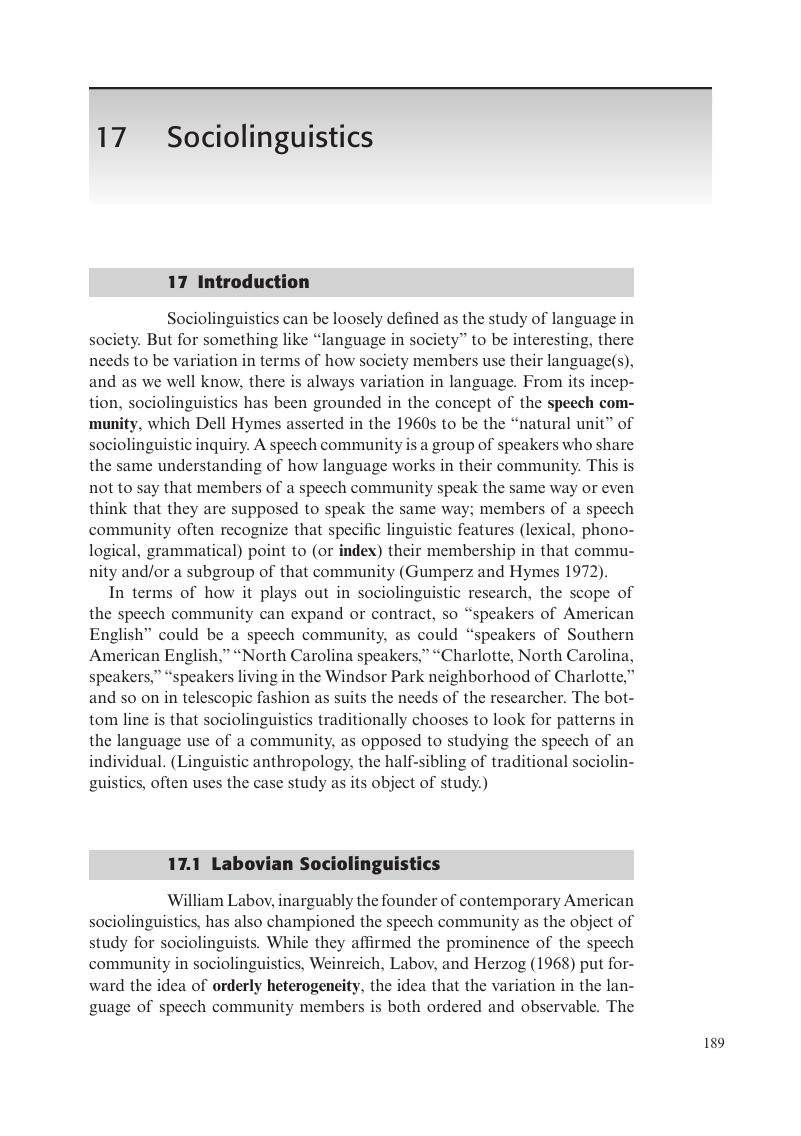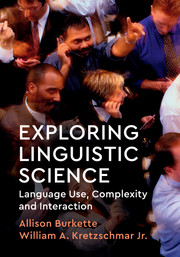Book contents
- Exploring Linguistic Science
- Exploring Linguistic Science
- Copyright page
- Contents
- Figures
- Tables
- Acknowledgments
- Introduction and Notes on the Text
- 1 A New Science
- 2 Complex Systems in Nature and Human Behavior
- 3 Complex Systems in Language
- 4 Language Basics: Sounds
- 5 Sounds: IPA and Acoustic Phonetics
- 6 Sounds: Evidence from the Linguistic Atlas
- 7 Language Basics: Morphology
- 8 Morphology: Empirical Data
- 9 Parts of Speech
- 10 Language Basics: Grammar and Discourse
- 11 Grammar: Sentences and Construction Grammar
- 12 Cognitive Linguistics
- 13 Language Evolution
- 14 Language Acquisition
- 15 The Aesthetics of Text: Text Types and Collocation
- 16 Style
- 17 Sociolinguistics
- 18 Big Data: Using a Corpus
- 19 Historical Linguistics
- 20 Conclusion: The Future of Interaction and Emergence
- Bibliography
- Index
- References
17 - Sociolinguistics
Published online by Cambridge University Press: 26 February 2018
- Exploring Linguistic Science
- Exploring Linguistic Science
- Copyright page
- Contents
- Figures
- Tables
- Acknowledgments
- Introduction and Notes on the Text
- 1 A New Science
- 2 Complex Systems in Nature and Human Behavior
- 3 Complex Systems in Language
- 4 Language Basics: Sounds
- 5 Sounds: IPA and Acoustic Phonetics
- 6 Sounds: Evidence from the Linguistic Atlas
- 7 Language Basics: Morphology
- 8 Morphology: Empirical Data
- 9 Parts of Speech
- 10 Language Basics: Grammar and Discourse
- 11 Grammar: Sentences and Construction Grammar
- 12 Cognitive Linguistics
- 13 Language Evolution
- 14 Language Acquisition
- 15 The Aesthetics of Text: Text Types and Collocation
- 16 Style
- 17 Sociolinguistics
- 18 Big Data: Using a Corpus
- 19 Historical Linguistics
- 20 Conclusion: The Future of Interaction and Emergence
- Bibliography
- Index
- References
Summary

- Type
- Chapter
- Information
- Exploring Linguistic ScienceLanguage Use, Complexity, and Interaction, pp. 189 - 200Publisher: Cambridge University PressPrint publication year: 2018

